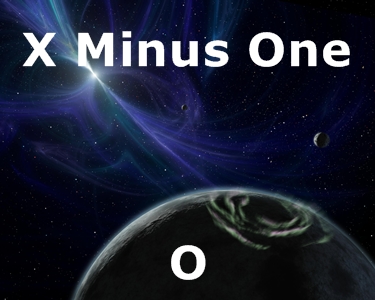The Old Die Rich
Author: H. L. Gold
Originally aired: 17 July 1956
[Another version of this story aired 12 September 1957]
Plot synopsis: An actor becomes involved in the investigation of the deaths of a number of old people who have died of starvation - yet, puzzlingly, all have large amounts of money in their possession. Based on a novella first published in Galaxy Science Fiction magazine, in March 1953; and later in H. L. Gold's short-story collection The Old Die Rich and Other Science Fiction Stories, in 1955.
Favourite line: [A bank manager in 1931]: 'This temporary recession is bound to abate - sound banking policies will see us through!'
Review: It isn't giving away too much to reveal that this is a time-travel story, though this is not immediately apparent at the start. The episode opens with a mystery, concerning the strange circumstances surrounding various deaths among the elderly, and it takes an unexpected turn when the time-travel element is introduced. It then becomes a clever, inventive take on the time-travel genre, managing to pack quite a number of ideas, and a fair amount of plot, into its running time. There's also at least one good piece of satire, about the Depression of the 1930s - see the line of dialogue quoted above - which many listeners may well find resonates today, too. However, exciting and enjoyable as the episode is, the explanation as to why the victims died of starvation is not as strong as in the original story on which it is based. In this adapted version, the explanation is - SPOILER ALERT! - that they had been sent back in time, and then brought back to the present, and what proves fatal is that only living tissue can successfully undergo the displacement. Thus, any food that they ate in the past does not return with them - since it is dead matter - which is why they starve to death. Yet this simply doesn't make much sense. Once food has been consumed, it becomes living tissue - so even if that which is in a time traveller's stomach at the moment of his return might 'disappear', whatever has already been broken down and become a part of him surely would not. Furthermore, what about clothing? How can this travel through time if food cannot? In the original story, the explanation of the old people's starvation is instead that something can travel from one era to another only if it already exists in that era - thus, people cannot go back to a time before they were born, must wear clothes that originate from the time they are travelling to if they do not want to materialize naked, and so on. Whether or not this has any real scientific logic to it, it nonetheless provides a more internally coherent rationale for why food eaten in the past, even once digested, will not transfer into the present. The other major merit of the written story over this radio version is that there is a whole section where the main character travels to the future, which (no doubt for reasons of time) the latter does not include, and it is a shame that this had to be excised. My recommendation, therefore, is that after listening to the episode, those who enjoyed it should check out the original story as well.
Rating: * * * *
[Other adaptations: Radio - Tales of Tomorrow (1953), Future Tense (1974), Audion Theatre (1990)]
Open Warfare
Author: James E. Gunn
Originally aired: 23 January 1957
Plot synopsis: A golfer tries to win a bet with the father of the woman he loves, to win the right to ask for her hand in marriage, by beating the father's sponsored player in a golf tournament. Based on a short story first published in Galaxy Science Fiction magazine, in May 1954.
Favourite line: 'In the locker room, he looked like a sack of flour that had been set down hard.'
Review: For the first half of this episode, it's possible to wonder why exactly this is an X Minus One production: on the surface at least, it seems to be a straightforward, lightly humorous tale about a golf competition. However, it's probable that most listeners will work out fairly quickly why this is indeed a science-fiction story, though I won't reveal the reason here. Yet predictability is the basic problem with the episode as a whole. Not only is it very easy to guess why the protagonist's golfing rival is so proficient, it's also not difficult to predict how the former will ultimately win the day. Thus, although the episode is a reasonably agreeable listen, because it holds few surprises and little in the way of true inventiveness, it might be said that this is a story that just isn't up to par ... (For those who enjoyed this episode, another sports-based one with a science-fiction twist is Martian Sam.)
Rating: * *
The Outer Limit
Author: Graham Doar
Originally aired: 16 November 1955
The story upon which this episode was based was adapted by various OTR series, and my main review is of the Suspense version here.
Rating: * *

